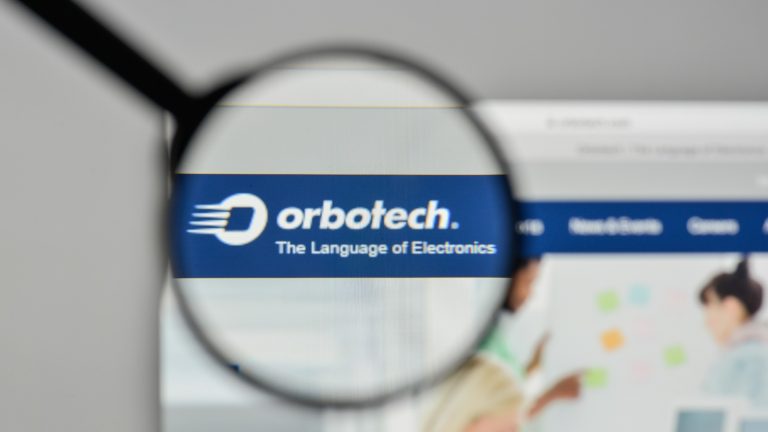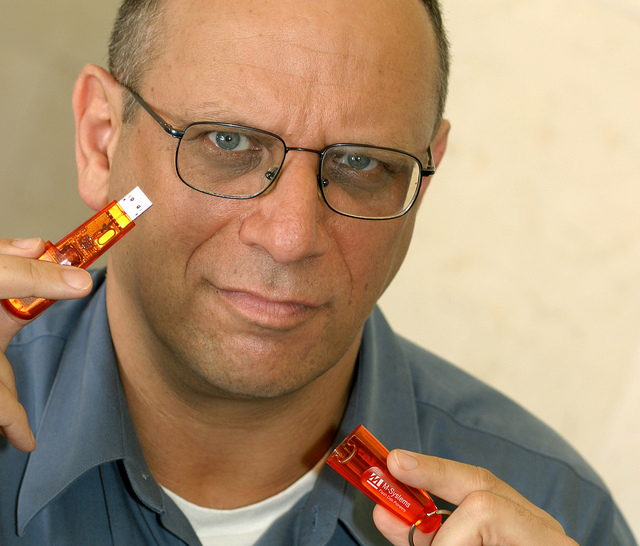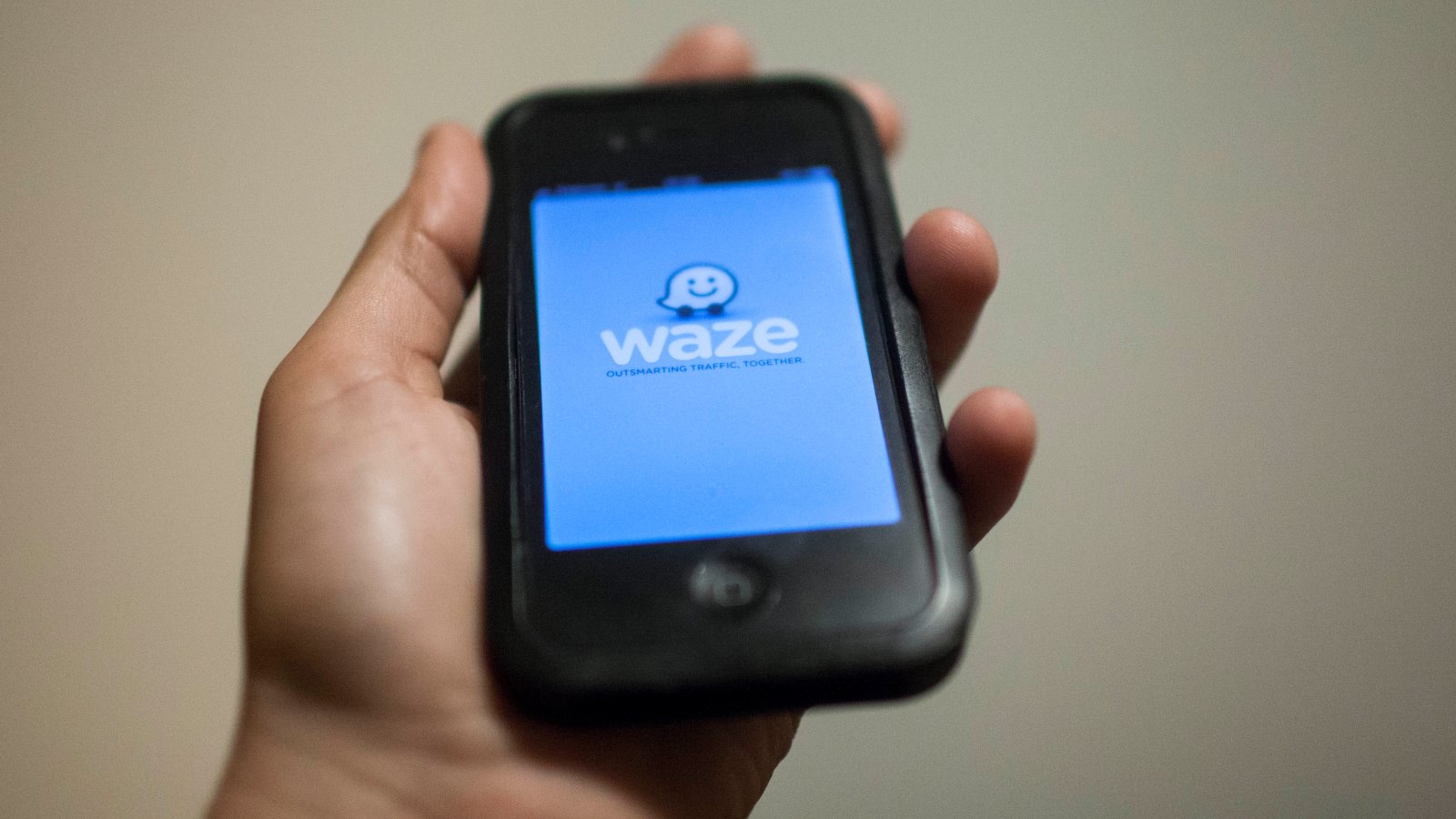
The 15 biggest acquisitions in Israeli history
Four of the top 15 largest acquisitions in Israel’s history were made in 2018 – the most in one year.
Israel wouldn’t have earned its reputation as the Startup Nation if some of the thousands of companies that have come out of this small country hadn’t earned big bucks for their investors.
While no acquisition in 2018 beat that figure, four out of the 15 largest acquisitions in Israel’s history happened over the last year – the largest number of significant buy-outs in one year.
What will 2019 bring? Serial entrepreneur-investor Yossi Vardi, who has helped launch no fewer than 85 high-tech companies over nearly 50 years, is optimistic.
“As the importance of innovation is being recognized by more and more companies and more and more countries, and as the unique role of Israel in the innovation space is becoming more and more appreciated, it is clear that we are going to see more companies and more countries gravitating to Israel to scout for innovation, technologies and companies,” Vardi tells ISRAEL21c.
Check out our list of the 15 largest startup acquisitions in Israeli history below. Plus, as a bonus, the acquisition that put the Startup Nation on the map in the first place (you’ll see Vardi’s name here too).
- Mobileye: $15.3 billion, 2017

With the market for self-driving cars heating up, semiconductor giant Intel found itself with no play against Google, Tesla, Apple and other leaders in the space. So in 2017 the company bought Jerusalem-based Mobileye, innovator of vision-based advanced driver-assistance systems, which is developing some of the most sophisticated technology to power tomorrow’s autonomous vehicles.
Mobileye and Volkswagen announced in October 2018 they would launch an autonomous ride-hailing service in Israel. Intel is increasing its already formidable presence in Israel by building a new 135,000-square meter campus for Mobileye that will employ 2,500 people in Jerusalem. Intel further committed to moving all its autonomous vehicle R&D operations to Israel.
- Frutarom: $7 billion, 2018
Ever wonder where that soft drink gets its flavor? Or where the fragrance for your favorite perfume comes from? There’s a good chance Israeli powerhouse Frutarom had something to do with it.
Established in 1933, Frutarom was the sixth largest food flavorings maker in the world until International Flavors & Fragrances (IFF) acquired the company in 2018 in the second largest deal ever in the Startup Nation.
Together with Frutarom, IFF – now the largest flavoring company in the world – picked up Frutarom’s production plants in the US, Canada, the UK, Ireland, China and Morocco. Frutarom marketed over 70,000 products in 150 countries, employing 5,600 people before the acquisition. Flavors for natural products constituted 75 percent of the company’s sales.
- NDS: $5 billion, 2012
Jerusalem-based NDS has been bought and sold three times in the last decade. Founded in 1988 as News Datacom, the company makes software and hardware (such as secure set-top boxes) for pay TV providers and was listed on Nasdaq before it was acquired in 2009 for $3.6 billion by London-based private equity firm Permira and Rupert Murdoch’s News Corporation.
In 2012, Cisco Systems, better known as a maker of network switches and routers, bought NDS for $5 billion to become a player in the video-on-demand market. But consumers have been gravitating to cloud-based video and streaming services such as YouTube and Netflix, leading to massive layoffs at Cisco’s NDS unit and the 2018 sale of the division back to Permira for $1 billion, just one-fifth what Cisco paid six years ago.
- Chromatis: $4.7 billion, 2000
When US-based communications equipment giant Lucent bought Chromatis in 2000, it was at the time the largest acquisition in Israeli history. But just a year later, Lucent shut down its Chromatis unit and laid off 130 employees, citing lack of demand for Chromatis products, which alleviated bottlenecks in the “last mile” of networks connecting telephone exchanges and customers. Lucent decided to focus on large telephone companies vs. the small customers that were Chromatis’s main business.
However, the Chromatis acquisition put its seed investor – Jerusalem Venture Partners – on the map and helped launch the political career of JVP founder Erel Margalit, who served in the Knesset from 2013-2017.
- Mercury Interactive: $4.5 billion, 2006
While consumer-facing technology tends to capture readers’ attention, it’s business-to-business products and services that are the bread and butter of the Startup Nation. It’s no wonder, then, that Israeli tech firm Mercury Interactive made one of the country’s most successful exits, acquired in 2006 by HP.
Mercury makes the kind of behind-the-scenes applications everyone uses but rarely talks about: software for application delivery and management, change and configuration services, quality assurance and IT governance. Mercury’s products became part of HP’s Software Division until 2017 when they were sold off to UK-based Micro Focus.
- Playtika: $4.4 billion, 2011
There are two main types of gaming companies: those that make shoot-em-up video games and those that make online casino games. Israel’s Playtika, a leader in the second category, was acquired in 2011 by the Caesar’s Interactive Entertainment, part of the Caesar’s casino chain.
Playtika games, including the World Series of Poker, Slotomania and Poker Heat, have been among the top grossing and most downloaded games for the past five years. The company has been trying to diversify its offerings through acquisitions of its own: in 2017, it picked up casual games maker Jelly Button and earlier this month purchased Germany’s Wooga. Since 2016, Playtika has been owned by a private equity consortium led by Giant Interactive.
- Orbotech: $3.4 billion, 2018

Orbotech claims that “virtually every electronic device in the world is produced using Orbotech systems.” Silicon Valley-based semiconductor giant KLA-Tencor apparently agreed and earlier this year made a multi-billion-dollar play for this Israeli company that works behind the scenes helping to build the printed circuit boards, flat panel displays and electro-mechanical systems consumers rely on today.
Orbotech’s specific expertise is in bridging the demands of systems designers with the production realities of the electronics manufacturing floor. Orbotech’s technology includes systems for inspection and testing, writing to circuit boards via inkjet and direct imaging, and connecting electronics via such techniques as laser drilling, metal deposition and more.
The future could be even more lucrative: As devices get smaller, thinner, wearable and more flexible, Orbotech helps translate these needs into new miniaturized packages. Orbotech was created bya merger between Orbot and Oprotech in 1991.
- SodaStream: $3.2 billion, 2018
In 2014, Israeli carbonated beverage manufacturer SodaStream was struggling. The company, which sells a countertop machine for make-your-own carbonated drinks, was seeing sales and profit drop as consumers turned away from sweet soft drinks. CEO Daniel Birnbaum refocused the company to offer healthier flavors (including plain soda water) and emphasized the environmental benefits of its reusable bottles.
Actress Scarlett Johansson was hired as celebrity pitch person and the company’s business rebounded – so much so that once-rival PepsiCo acquired the company earlier this year. SodaStream got its start in the UK in 1903; the company was bought by Soda-Club, an Israeli firm, in 1998. PepsiCo has committed to keeping SodaStream in Israel for at least 15 years although PepsiCo CEO Ramon Laguarta said it could remain in Israel “forever.”
- Imperva: $2.1 billion, 2018
Cybersecurity is one of the Startup Nation’s strongest sectors – by July 2018, there were 166 cybersecurity startups in the country – and one that has seen significant acquisition action. Symantec acquired Fireglass and Skycure, both for around $250 million each; Continental picked up Argus Cybersecurity for $450 million; and Palo Alto Networks paid $130 million for Lightcyber.
But none of those compare with private equity technology investment firm Thoma Bravo’s multibillion-dollar acquisition of Imperva in 2018. Imperva makes a suite of products to help organizations protect their websites, applications and databases from cyberattacks by deploying “user tracking and classification to detect and block cyberattacks, botnets, unauthorized users and malicious insiders.” The company has 6,200 customers and 500 partners in more than 100 countries. Imperva was founded in 2002 as WEBcohort and was listed on Nasdaq prior to the acquisition. Its newest office is opening soon in Ireland.
- M-Systems: $1.5 billion, 2006

If you’ve ever needed to transfer files larger than what can be sent by email, you’ve probably used a USB flash drive. You can thank Israeli tech firm M-Systems for that: the company invented the concept of a small, portable memory stick. Released in 2000 as the DiskOnKey, it drew the attention of SanDisk, which acquired the company in 2006.
Flash drives eventually contributed to the demise of both floppy disks and CD-ROMs in personal computers. M-Systems founder and CEO Dov Moran has been a serial entrepreneur for most of his career, but never found the same level of success as he did with M-Systems.
He went on to found Modu, a modular cell phone which didn’t catch on (Google bought up its patents in 2011) and Comigo, which makes software for smart TVs.
- Waze: $1.1 billion, 2013

Israelis are impatient. If there’s a shortcut, we’ll take it. So it’s not surprising one of the biggest acquisitions in Israeli history involves a company that helps commuters save time on the road.
Waze uses GPS sensors on users’ smart phones and the power of the crowd to create real-time updated traffic maps and turn-by-turn directions.
It’s so popular in Israel that Waze has become a verb (“Just Waze the address”). Google (another noun turned verb) decided it wanted to drive in Waze’s fast lane, too, and acquired the company in 2013.
Rather than integrating Waze into Google Maps, Google committed to keeping Waze a separate brand (headquartered in Israel, no less) while making Google Maps smarter with some of Waze’s data.
- Neuroderm: $1.1 billion, 2017
The search for an effective treatment for Parkinson’s disease is increasing as the world population ages. Israeli pharmaceutical firm Neuroderm makes a liquid version of levodopa, the gold standard treatment for Parkinson’s toincrease dopamine in the brain and forestall the worst symptoms. Levodopais usually taken in tablet form. But tablets have a very short half-life. Injecting them continuously via a patch pump or small belt pump “should transform patients’ lives, offering them clinical benefits that can only be obtained today by undergoing highly invasive surgery,” Neurodermclaims.
That caught the attention of Japanese pharmaceutical giant Mitsubishi Tanabe Pharma, which bought the company in 2017. Neuroderm founder Alon Yaar is now working on his next medical breakthrough startup – KidneyCure, which promises to delay the need for kidney dialysis or transplant.
- Trusteer: $1 billion, 2013
The second largest cybersecurity exit on our list, Trusteer was acquired by IBM in 2013, seven years after the company was founded. Trusteer – now part of IBM’s Boston-based computer security division – makes products that block online threats from malware and phishing attacks, and alert customers immediately.
Trusteer’s malware research team analyzes the information it receives from an installed base of 30 million user “endpoints” and hundreds of organizations. The company built a worldwide presence – including operations in North and South America, Europe, Africa, Japan and China – before IBM made its bid.
If the Trusteer brand name sounds familiar, it’s because your bank (customers include Bank of America and the Royal Bank of Scotland) may have offered it to you for free with its online banking services.
- Valtech Cardio: up to $1 billion, 2016
The only medical device company on our list, Valtech Cardio was acquired by Irvine, California-based Edwards Lifesciences in 2016 for $340 million in stock and cash with the potential for another $650 million over the next 10 years. The acquisition was notable given that Valtech did not have any sales when Edwards made its move.
Valtech’s main product, the Cardioband System for repairing the mitral and tricuspid valves of the heart via catheter, is a perfect fit with Edwards’ products for valve repair and replacement. Part of the deal was that Valtech would spin off its transseptal mitral valve replacement technology with Edwards retaining the right to acquire it at a later date.
Some six million Americans suffer from mitral valve or tricuspid valve regurgitation, which involve leakage of blood backwards into the heart.
- Viber: $900 million, 2014
Call and messaging app Viber joined the Rakuten family of products in 2014 when the Japanese Internet giant acquired Viber as part of Rakuten’s goal of “becoming the world’s no. 1 Internet services company.” Viber had 300 million registered users at the time of the acquisition (Rakuten had “only” 225 million.)
Today, Viber is up to 1 billion users who can make audio and video calls, launch group chats, send animated stickers and record instant video messages. Viber also offers “Viber Out” calls in the same way that Microsoft offers “Skype Out” calling on its Skype platform.
Bonus: Mirabilis: $287 million, 1998
While not the largest acquisition in Israeli tech history, the Startup Nation was in many ways kick-started by AOL’s 1998 acquisition of Mirabilis, the company behind ICQ. Long before WhatsApp and Facebook Messenger came to dominate the messaging scene, Mirabilis developed one of the first Internet chat products.
The acquisition also launched Yossi Vardi’s career as the “godfather of high-tech” investing in Israel through what Forbes magazine once dubbed “the Mirabilis Effect.” It was Vardi’s son Arik who co-created ICQ. Dad put up the initial money and has been seeding startups ever since. “We have always been very good at seeding, whether in agriculture with tomatoes or high-tech,” Vardi says. “The underlying ecosystem, the spirit of the people, is somehow part of our genetic and cultural DNA.”
Source: Israel21c